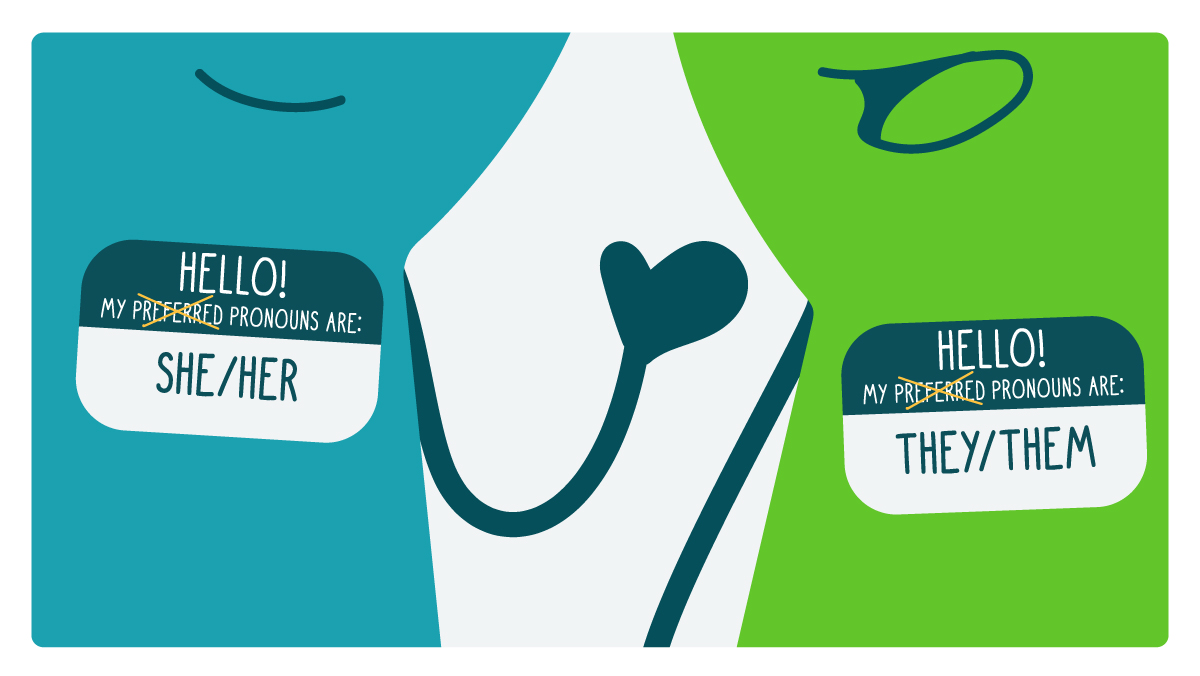
Here at We ❤️ Health Literacy HQ, we’re proud to be an LGBTQ+-owned organization — and we always look forward to Pride Month, which kicked off last week! Pride is all about acceptance, equity, celebrating the work of LGBTQ+ people, and raising awareness of issues that affect LGBTQ+ communities.
And as you doubtless know, dear readers, we’ve been thinking a lot lately about inclusive, respectful language — and what that means for health communicators like us. So we thought this was a great time to bring you a very simple — but very important — tip about gender pronouns.
Ever heard a person ask about someone’s “preferred pronouns”? Or maybe you’ve asked that yourself — many of us have. As a health comm professional, you may have even written “preferred pronouns” in a survey or some other health-related form collecting personal information. And while this is probably almost always well-intentioned — and is certainly an improvement from assuming we know someone’s pronouns based on how they look — it still presents a problem.
It’s the “preferred” that’s the issue here. Introducing “preferred” to this equation basically implies that using the correct pronouns to talk about someone is optional — a matter of preference. Think about it: Generally speaking, even if you prefer one thing, you’re likely still okay with an alternative (“I like plain coffee, but I prefer my coffee with milk”).
Part of a person’s actual identity is simply not on the same level as your morning caffeine choice. There’s nothing “preferred” about it. Someone’s pronouns are, factually, their pronouns — and using them correctly demonstrates respect for that person.
So save your questions about “preference” for true matters of, you know, preference! Keep it simple by asking, “What are your pronouns?”
We know we don’t have to tell you, dear readers, but words are tremendously powerful. And in our line of work, we have a real responsibility to communicate health information with empathy. Dropping the loaded qualifier from “preferred pronouns” is one small step we can take to do better.
The bottom line: A person’s identity is not a preference. When you’re asking or writing about pronouns, drop the “preferred.”
Browse recent posts